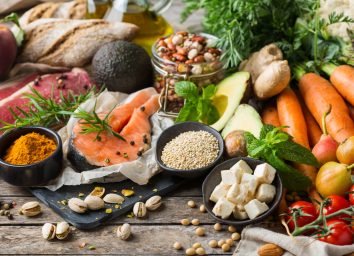4 Popular Diets That Don't Actually Work, Say Dietitians

There always seems to be a new diet coming out of the woodworks that will claim to help you lose weight. While some may actually get the job done, others fall flat and leave you with questions as to what went wrong. In some instances, diets will work in a short period of time. However, in the long run, you're left gaining the weight back that you worked so hard to take off.
It's hard to know which diets will actually work best for you personally, or which will flop. That's why we brought in two experts from our Medical Expert Board to tell us what diets they believe won't work. Once you've checked them out, take a look at Diet Habits Wrecking Your Immune System, Say Dietitians.
The ProLon diet
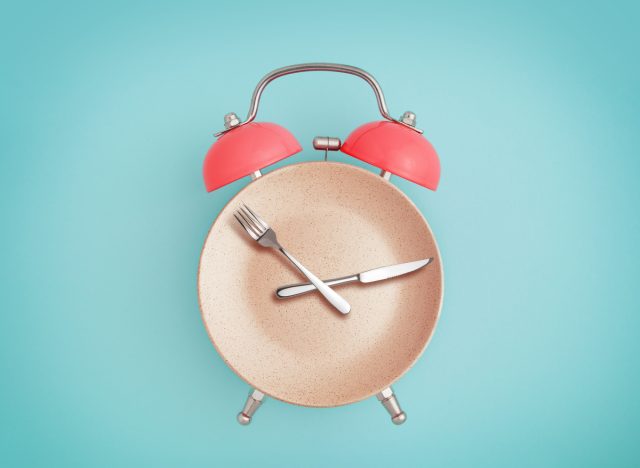
The ProLon diet focuses on fasting-mimicking—a specific intermittent fasting plan that limits calories for a set period of time, but during which you don't stop eating entirely. It is a 5-day plan that is supposed to nourish your body, support cellular rejuvenation, and support metabolic and overall health for healthy aging.
In the diet, you eat meals that include plant-based soups, energy bars, drinks, and a variety of snacks such as chips. You can also take a supplement that minerals, vitamins, and essential fatty acids.
"Since this diet involves the use of pre-packaged foods and drinks provided by the brand, people aren't learning sustainable ways to manage their weight, and instead are going auto-pilot on a low-calorie plan that results in dropping pounds without any thought," says Lauren Manaker, MS, RDN, LDN, CLEC, CPT, author of The First Time Mom's Pregnancy Cookbook, The 7 Ingredient Healthy Pregnancy Cookbook, and Fueling Male Fertility. "While people will see quick results, they may not see sustainable results."
The Ketogenic diet
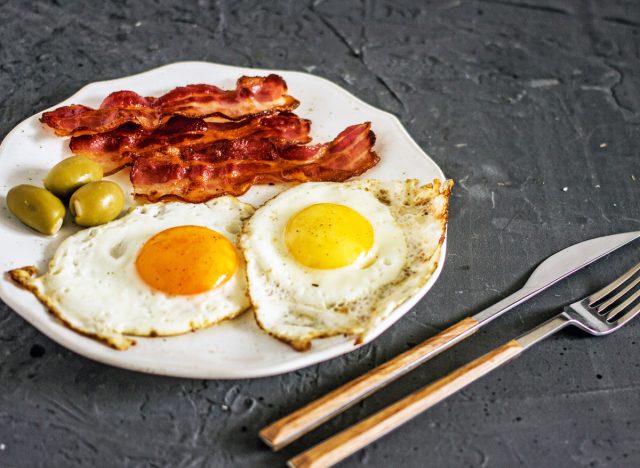
Also known as the Keto diet, this diet consists of limiting your carbohydrate intake while focusing on eating high-quality fats as well as a moderate amount of protein.
"I'm not a fan of the keto diet," says Lisa R. Young, PhD, RDN, author of Finally Full, Finally Slim, and The Portion Teller Plan. "This diet is a very low carb, high-fat diet. Limiting carbs and increasing fat intake leads to ketosis, where your body uses fat for energy instead of carbs. This can lead to metabolic acidosis, constipation, dizziness, and bad breath.
While it may work for the short term, Dr. Young also suggests that the Keto diet is unrealistic and not sustainable. It will lead you to gain the weight back after you're done with the diet, reintroducing carbs.
"It is also too low in fruits and vegetables and lacking fiber and antioxidants," says Dr. Young.
The Cabbage Soup diet
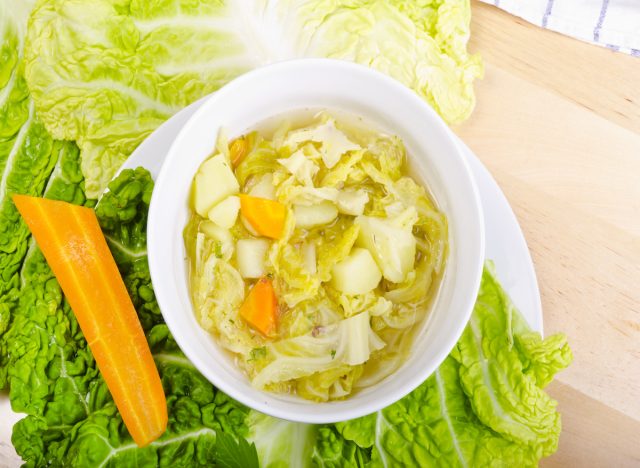
According to Manaker, the Cabbage Soup diet promises to help people lose weight. The diet sounds just like the name—you're supposed to mainly eat cabbage soup for 7 days straight. You will also eat specific foods throughout the course of the week, such as specific fruits and vegetables.
However, most people can't live off of the guidelines of this diet long-term.
"Because of this, people will likely gain back any weight they lose while following this diet shortly after they start eating normally again," says Manaker.
The Paleo diet
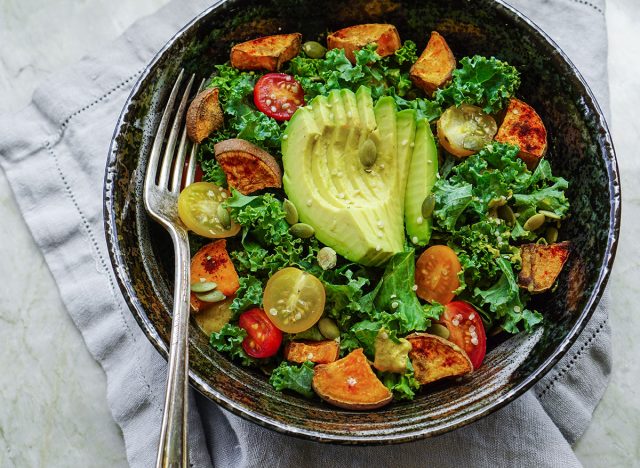
Similar to Keto, the paleo diet is high in protein. It was actually structured based on prehistoric human diets, consisting only of foods that were available during the Paleolithic era. Examples include lean meats, fish, vegetables, fruits, nuts, and seeds. However, other food products such as grains, legumes, dairy, sugar, salt, potatoes, and processed foods are not part of the diet.
If you're looking for rapid weight loss, then the paleo diet is good for a quick turnaround. However, this is not a substantial diet for your everyday life long-term. This is mainly because you are restricting your body from eating foods that contain other nutrients your body needs. If you're cutting out all these other foods, chances are you'll crave them more and eventually give in to devouring them– more than you would've before.
It's also possible that you eat too much of the foods the diet recommends, meaning you can overindulge in these "healthier" food options and still gain weight.

